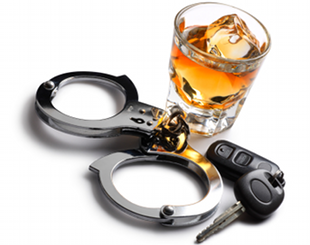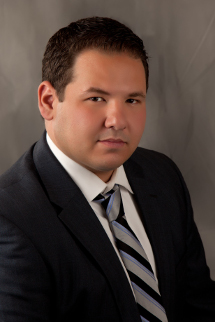Driving Under The Influence: Free Attorney Consultation
Have Your Case Analyzed by an Experienced Criminal Defense Lawyer in Minnesota

Driving Under The Influence in Minnesota? We Can Help.
- Experienced and Aggressive DUI Defense
- Affordable Rates
- Don’t Let a DUI or DWI Destroy Your Life
- FREE Case Evaluation with an Attorney
Get Free Legal Advice Today
Driving Under The Influence in Minnesota
A DUI in Minnesota can carry one of the harshest and most severe penalties when compared to other criminal offenses. For that reason, it is important to take the time to understand some of the elements surrounding a DUI charge. As a DUI lawyer in Minnesota, Attorney Goldfine has answered commonly asked questions that will help you with a basic understanding of DUI and DWI offenses, as well as possible DUI and DWI defenses.
Frequently asked questions
The legal limit for DUI in Minnesota is a blood alcohol content of 0.08 percent.
Do not take the breath test. The breath test is used by law enforcement to get probable cause to arrest you. It is not illegal to refuse to take the breath test on the side of the road. Instead, offer to take the urine, blood, or a different breath test at the police station. The results of your breath test on the side of the road are not admissible in court, however, they can be used by police to find probable cause to arrest you.
It will depend on the facts and circumstances surrounding your case. Every DUI arrest is based on multiple facts. There are some affirmative defenses for DUI your criminal defense attorney can use that could get your case dismissed. Further, the arresting police officer may have done something wrong at the time of your arrest, which could get your case dismissed. While a DUI charge might not get dismissed, a knowledgeable criminal defense attorney can often times get a lighter sentence or penalty for their client. An experienced criminal defense attorney at our law firm can evaluate your case for free and explain a good strategy for your case.
Public defenders are lawyers, too. Public Defenders often don’t have as much time as a private criminal defense attorney to put into defending your case, because a public defender may have up to 25-50 more cases to handle in addition to yours. If you want to be more than a number and get aggressive and dedicated representation, call one of our experienced DUI criminal defense attorneys.
The criminal penalties for a DUI offense in Minnesota are determined by the number of aggravating factors existing at the time the offense is committed. The fines and days listed in jail or prison are the maximum penalties. • Number of Aggravating Factors: • None: 4th Degree DUI, misdemeanor and up to $1,000 fine and/or 90 days jail • One: 3rd Degree DUI, gross misdemeanor and up to $3,000 fine and/or 1 year jail • Two: 2nd Degree DUI, gross misdemeanor and up to $3,000 fine and/or 1 year jail • Three: 1st Degree DUI, felony (fourth offense only) and up to seven years incarceration and/or $14,000 fine
Two things happen after an individual fails a test for either alcohol or controlled substances after driving. First an individual is charged with a crime. At the same time the State of Minnesota takes a unilateral action against the individual's driving privileges in the State of Minnesota. Usually this occurs 7 days after the failed test result. An individual has 60 days to challenge this revocation of their driving privileges or their license is lost. It is imperative that an individual contact an attorney in order to discuss this matter within the 60 days allotted to challenge the revocation.
After an individual is placed under arrest for suspicion of driving under the influence they are usually brought either to the county jail or a local hospital. There they will be read the Minnesota Implied Consent Advisory and be asked to submit to either a breath, blood or urine test. The suspect is always given the opportunity to contact an attorney prior to submitting to chemical testing. Call the 24/7 help line at (612) 217-4357 to speak with an attorney at this point.
Minnesota Statute 169A.20 https://www.revisor.mn.gov/statutes/?id=169A.20
Yes. A law enforcement officer can arrest you for a DUI if he or she knows that you were in actual physical control of the vehicle and believes your normal abilities are impaired enough that you should not be operating the vehicle. Normal abilities basically means the way you talk, walk and behave in a typical situation. Your normal abilities are likely to be tested when the law enforcement officer requests that you complete voluntary roadside sobriety tests. These tests are often scrutinized and criticized, but they are often times the standard for whether you are to be arrested. • Some of these roadside tests include, but are not limited to, standing on one leg, the walk and turn, the finger to nose test, the HGN test, follow the light with your eyes, say the alphabet backwards, and others.
It depends on many factors. Some of the factors include i) the level of offense the client is being charged with (i.e. felony, gross misdemeanor, or misdemeanor), ii) the client’s goals for their case, iii) the type of crime the client is being charged with, as well as other factors. After your free case evaluation with one of the experienced attorneys at Tarshish Cody, PLC, the attorney can make a better determination as to how much is appropriate to charge for your case. The majority of criminal cases our firm handles are on a flat fee, which means there will not be unexpected fees. Attorneys at Tarshish Cody are committed to providing quality legal services at an affordable rate.
Say nothing at all and keep your mouth shut. After being pulled over all an individual is required to do is provide the police officer with a valid drivers license and proof of insurance. Always be polite to the officer but inform them that you would like to exercise your 5th amendment right against self incrimination. For example, if the officer asks you how much you have been drinking tonight, you can respond, “officer, I am not trying to be difficult but an attorney advised me that I should refrain from answering your questions.”
The nice thing about your 5th amendment rights are that they apply to your words and your actions. You have a right against incriminating yourself by what you do. Therefore, do not submit to any field sobriety test or the roadside alcohol test.
In Minnesota it is a crime to refuse chemical testing, once an individual has been placed under arrest for suspicion of DUI (Note: This means after arrest, not the breath the breathalyzer test on the side of the road). Often the crime of refusal has more serious penalties than the DUI itself. Prior to making the decision as to whether to take a test, an individual is given an opportunity to contact an attorney. Call the 24/7 help line at (612) 217-4357 to speak with an attorney at this point.
Each DUI case is unique and will require a different approach towards fighting the allegations. At the very least it is worth the time of an individual facing DUI charges to sit down with an attorney to discuss the charges. At Tarshish Cody we offer FREE initial consultation to individuals facing all charges. Contact an attorney 24/7 at (612) 217-4357 to discuss your individual matter.
Most likely yes; however there are some instances where Minnesota can not use your prior DUI to enhance your current DUI. Often this can be the difference between significant jail time and no jail time at all. One of our experienced DUI attorney can help answer this question.
Yes and No. They do not have to read you your Miranda rights. Sometimes they will if they want to collect statements from you but in the vast majority of cases they will not read you your Miranda rights. They do have to read you a document called the Minnesota Implied Consent Advisory. Prior to submitting to chemical testing you are asked if you would like to consult with an attorney. Call the 24/7 help line at (612) 217-4357.
No. Often police will use the statements of eyewitnesses or decide based on circumstantial evidence that they can prove you were driving, operating or in physical control of the motor vehicle.
It is becoming more and more common that squad cars have video recording capability. This isn’t necessary for the State to have to prove their case but if it is available, then they must disclose it to your attorney.
According to Minnesota law, by operating a vehicle within the state a person is said to have consented to a chemical test of his or her breath, blood, or urine for the purpose of determining the presence of alcohol or another controlled substance.
Yes. If it is your first offense, then you are often booked and released to a family member or friend. However, this is not always the case. In the event you have prior DUIs on your record, you will likely be forced to stay in jail until you can be seen by a judge at a Rule 5 or Rule 8 Hearing. Contact one of our experienced DUI criminal defense attorneys immediately and they can request the judge reduce your bail or eliminate it, and help negotiate your release. This often requires posting bail or agreeing to intense alcohol monitoring.
Yes. All individuals charged with a crime in Minnesota are entitled to the presumption of innocence and to a trial. At this trial, either a judge or jury of their peers must find their guilt beyond a reasonable doubt. Many criminal cases do not get to the trial stage, because they are either dismissed before trial or the defendant enters a plea before trial.
Yes. Minnesota’s DUI law covers driving while impaired, and impairment may be caused by drugs as well as by alcohol. If you are in this situation, you should react just like you would if alcohol were involved: remain polite to the officer, but exercise your constitutional rights against self incrimination. Then call a criminal defense attorney at your first opportunity to discuss the situation before submitting to any tests at the station.
Violating probation on a DUI can be as serious or more serious than addressing the court for the original charge. At this point in the proceedings it may be more important to speak with an attorney to address the alleged violation.
Yes. These offenses are taken as seriously as an alcohol related offense. Although the State of Minnesota views these cases as the same as an alcohol case, there are specific defenses to DUIs that come as a result of prescription pills. In almost all cases your blood will be drawn and sent out to the Minnesota BCA for testing. Do not wait until after the test result is back to contact an attorney if you receive a DUI because of prescription pills.
It depends upon the facts of the case and the individual. All my clients want the best result in any given case. I always tell them what is a good result for Jon may not be a good result for Jane. At Tarshish Cody we tailor our representation to the individuals needs.
If you are convicted of driving under the influence, it will be reflected on your driving record which is often reviewed by insurance companies when a policy is being purchased or renewed. A DUI conviction on your driving record makes you a high-risk driver in the eyes of the insurer, so your premiums are likely to increase significantly when your insurer discovers the conviction. Some insurance companies will not insure drivers with DUI convictions at all.
Field Sobriety Testing is one trick question. There are no right answers. The officer is looking for your mistakes and will use the mistakes to build a case against you. After receiving the video of the Field Sobriety Test from the prosecutor I often am amazed how different the officer views the conduct as opposed to how I view it.
The state will send a document entitled Notice of Revocation to the address listed on your driver’s license. Often individual do not reside at this residence and thus do not receive the revocation. 5-7 days after receiving this document the individual's driving privileges are revoked. An individual has 60 days to challenge this revocation of their driving privileges or their license is lost. It is imperative that an individual contact an attorney in order to discuss this matter within the 60 days allotted to challenge the revocation.
It depends. Usually Defendants suspected of a gross misdemeanor or felony DUI in Minnesota will be held in custody following their arrests. Not counting the day of arrest, holidays and weekends, the prosecutor is allotted 36 hours to charge you and bring you before a judge for arraignment. So if you’re arrested on the Thursday prior to Memorial Day Weekend, you could be held in custody for as many as six days. If you are only charged with misdemeanor DUI, however, you could be released the same day, and your first court appearance might not be held a month or two in the future.

Felony, Gross Misdemeanor, Misdemeanor, DUI, DWI, Theft, Traffic Tickets, White Collar, Drug Crimes (Possession, Sale, Distribution) and more criminal offenses.
Adam Goldfine aggressively fights for his clients' rights. He knows the justice system inside and out. His communication ability is a powerful tool when dealing with opposing prosecutors, judges, and his clients. He represents clients of all walks of life, and does so both ethically and zealously.
William Mitchell College of Law, St. Paul, Minnesota, Juris Doctor of Law University of Kansas – Lawerence, Kansas, Bachelor of Arts
Minnesota State Bar Association

Proven results
Result: 4th Degree DUI
McLeod (Glencoe)
Result: Misdemeanor DUI
Hennepin County
Result: DUI- Refusal to Submit to Chemical Test
Hennepin County / 2 priors
Result: 2nd Degree DUI
Olmsted County (Rochester) / 1 prior / alcohol level: .24 (3 children in vehicle)
Result: 4th Degree DUI
Hennepin County (Minneapolis) / 0 prior(test refusal)
Result: 3rd and 4th Degree DUI
McLeod County (Glencoe) / (both test refusals)
Result: 1st Degree DUI
Dakota County (Lakeville) / 3 priors / alcohol level: 0.18
Result: 3rd Degree DUI
Dakota County (Apple Valley) / 1 prior
What our clients say about us
The attorneys at Tarshish Cody worked as a team to defend my DUI charges. I felt more comfortable having more than one set of eyes looking out for me. They explained my options and got me a great deal, without jail and a very low fine, which basically made it so they paid for themselves.
Thomas O.*
Adam Goldfine held my hand through the whole process and made me feel like more than just a number. I didn't use a private attorney on my first DUI, and it really hurt me, so I knew I needed someone to aggressively fight for me this time around. Adam did a great job and went above and beyond. Thank you!
Jennifer K.*
No wonder I got the statutory minimum for the fine and no jail time, Adam knows his stuff, and it doesn't hurt that he's a likable guy and he spoke for me when it was time to negotiate with the prosecutor.
Anonymous
This was my second DUI and I felt like the prosecutor was out to get me. Adam was compassionate and understanding with my alcohol problems and relapse and he gave me great advice, which helped my criminal case. He handled my case like I was related to him (even though I was just a stranger) and he cared about the outcome. Obviously, I was happy with the result, otherwise I wouldn't be writing a testimonial!
Jess D.*
*Name was changed to protect the client's identity.

